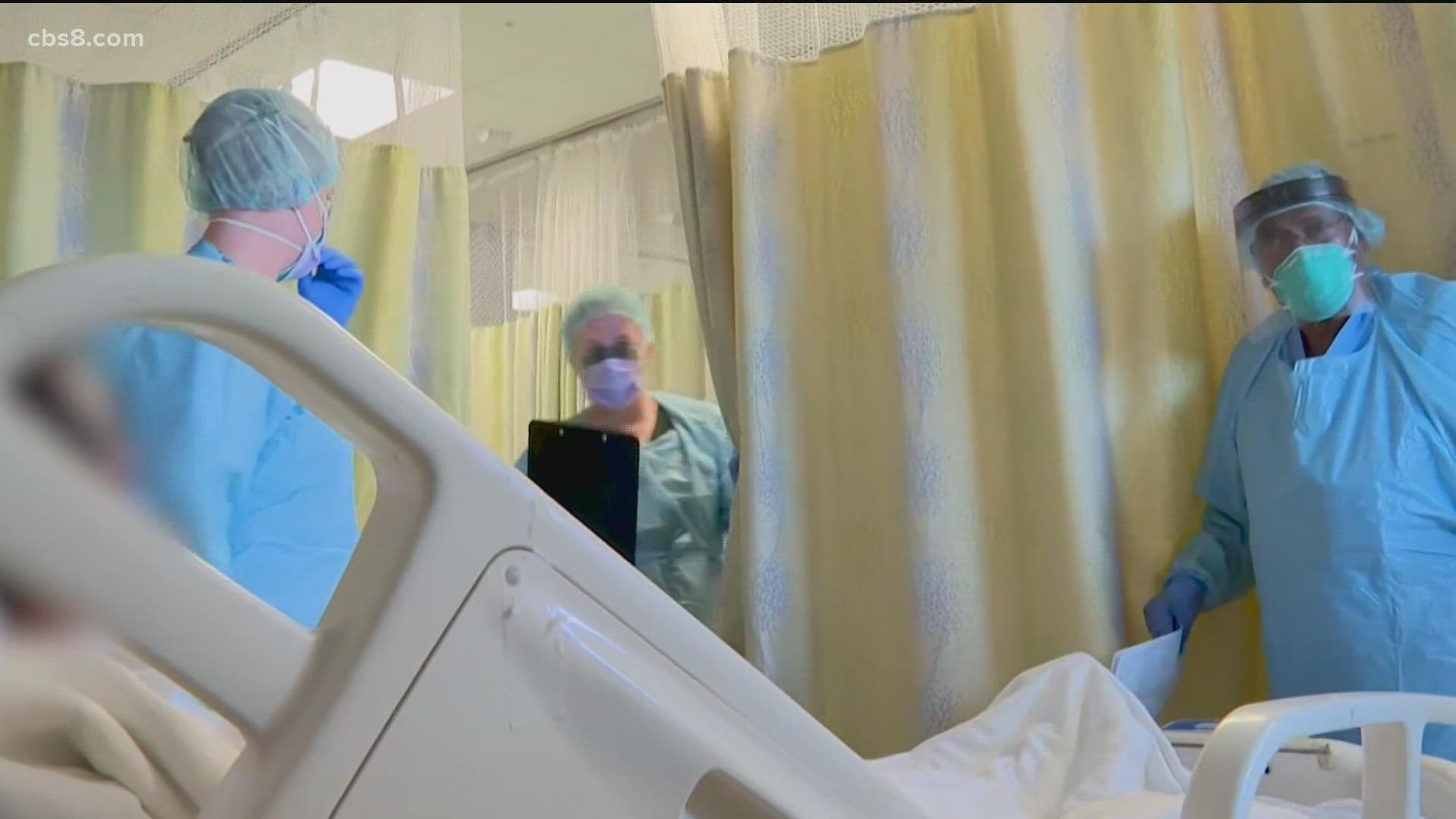SAN DIEGO COUNTY, Calif. — UC San Diego Health is taking steps to reframe what the "new normal" will look like for doctors, nurses, and their patients.
Officials told CBS 8, now is the time to make appointments if you've been putting it off during the pandemic.
"I'm not going to go in and get those things done right now, I'll just wait," said Cynthia Gonzales.
"A checkup, my checkup was delayed," said Hayden Thomas.
This probably sounds familiar… waiting to see a doctor or specialist and putting important check ups on hold.
Dr. Christopher Longhurst chief medical officer for UC San Diego Health says now is the right time to see your doctor as COVID numbers have flattened, and hospitalizations are very low.
"With the lower numbers, it allows us to focus on other important things in the health system, one of the things we've discovered is many people delayed seeking care during COVID and unfortunately we're now seeing more cancers at a later stage," said Longhurst.
Longhurst says with San Diego being past omicron and heading into warmer months, we need to look at COVID as not being something "new" and act when it comes to our health.
"It's a respiratory virus, we have a lot of respiratory viruses like the flu and RSV and they tend to come in the wintertime with the largest peak, if you need to see your doctor go see your doctor," said Longhurst.
UCSD sent a letter out on Wednesday to its employees, letting them know they are in the green tier or low tier.
Beginning next Monday, the hospital will not test patients when they first arrive and testing will be optional for vaccinated employees, however tests will still be required for unvaccinated employees.
However, masks will be optional for employees in non-healthcare settings.
"By our definitions here at UCSD we're in the low prevalence tier--meaning there's not much COVID in the community and that gives us the confidence to roll back some of the precautions here at the health system," said Longhurst.
Longhurst says UCSD is tracking COVID through wastewater, which he says predicts a COVID surge one to three weeks in advance.
"We're really confident this new system will help us be better prepared and take better care of our patients," said Longhurst.
Hospitals will operate under normal staffing plans in this low category, but leaders are working to consider the next phase of its approach as the county moves into a an "endemic" approach to COVID.

